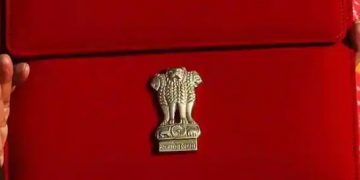Himanshu Guru
As an academic, Valerie Henitiuk’s main interests are world literature and translation. She says the reading and interpretation of literature is a multi-dimensional critical endeavour and academics should play a proactive role in broadening the literary horizons of students...
 Valerie Henitiuk is a professor at MacEwan University in Canada where she also serves as the executive director of the Centre for the Advancement of Faculty Excellence (CAFÉ) and the university’s advisor for Indigenous Initiatives. Her areas of research are the intersection of translation studies, world literature, Japanese literature and women’s writing. She will visit Bhubaneswar soon to release the book ‘Spark of Light’ which she has co-edited with renowned Oriya litterateur Supriya Kar. In a tête-à-tête with Sunday POST, the academic and intellectual shares a few precious findings from her extensive research into world literature. Excerpts from the interview:
Valerie Henitiuk is a professor at MacEwan University in Canada where she also serves as the executive director of the Centre for the Advancement of Faculty Excellence (CAFÉ) and the university’s advisor for Indigenous Initiatives. Her areas of research are the intersection of translation studies, world literature, Japanese literature and women’s writing. She will visit Bhubaneswar soon to release the book ‘Spark of Light’ which she has co-edited with renowned Oriya litterateur Supriya Kar. In a tête-à-tête with Sunday POST, the academic and intellectual shares a few precious findings from her extensive research into world literature. Excerpts from the interview:
‘Spark of light’ is a short story collection by women writers of Orissa. How was the experience of jointly editing the book with Supriya Kar?
I first got to know Supriya Kar when she was a Charles Wallace Translation Fellow at the British Centre for Literary Translation (BCLT) where I served as director. We shared an interest in women’s writing and, once Supriya returned to Bhubaneswar, she proposed working together on a collection of short stories by Oriya women writers, in English translation. At first I resisted, because I knew so little about the topic. But then I thought all the more reason to learn! Having Supriya as a collaborator was a huge benefit, given her broad expertise. ‘Spark of Light’ is really hers, and that of each of the writers and translators who contributed. And the same can be said of our first edition, published by Rupantar. I was asked to contribute specifically on the translation studies side, also bringing native English editing skills to the table. Supriya and I have, over the years, developed a true partnership where we each have specific defined roles. My own has been relatively small.
Literature apart, what are the other aspects of Orissa that fascinate you? Do you plan to visit the monuments and shrines of Orissa during your upcoming visit?
I am excited to come to Bhubaneswar for the launch of ‘Spark of Light’ December 20. This will be my first visit to the state, and so it will be a treat to see the many temples and other famous sights. Of course, we will make time to visit Konark as well as the Chilika Lake, which are so well known. Outside of literature, I am passionate about art (my husband and I have an eclectic collection by Canadian as well as international artists). I especially love textiles and handmade artisan works of all kinds. So I am looking forward to discovering the traditions of Orissa. On my other previous trip to India, about six years ago, I visited New Delhi, Kolkata, Bangalore, and Ahmedabad – it felt like four different Indias! At the time, BCLT was looking to establish partnerships for the training of literary translators, and so my colleague and I met with various translators, publishers, professors, and of course representatives of the Sahitya Akademi. The training did go forward, in collaboration with colleagues at Jadavpur University.
What are your upcoming academic projects?
My research has always turned on women’s voices, and questions of interpretation – metaphor, gendered readings, cross-cultural communication, how minority literatures do or do not circulate in the global literary flow. My current project is a study of English and French translations of Inuit literature, which is not at all widely known, even within Canada. I am working on a new book titled ‘The First Inuit Novel: Translation, Gender and Agency in Canada’s North’. In preparation, I have published a couple of articles, including ‘Memory is So Different Now,’ on the development of a written culture, and ‘Of Breathing Holes and Contact Zones: Inuit-Canadian author Markoosie in and through Translation.’ And, with my students, I am now researching a conference paper on James McNeill, who held the unique and somewhat imperialistic role of ‘Literature Development Specialist,’ seeking to promote the literary culture of Inuit – or at least what he believed the rest of Canada wanted to read.
What drew you to Japanese literature? What has been your focus with regard to Japanese women’s writing?
Japan is the only culture that I know of where women wrote the canonical works. Their Shakespeare, their Homer are women. I was introduced to classical Japanese literature by a professor and mentor of mine, Sonja Arntzen, who was translating a 10th-century text known as ‘The Kagero Diary’. In it, a woman tells of the challenges of her failing marriage and of raising a child on her own. This struck me as the experience of so many of my friends today, and so I was inspired to learn to read the language. My very first academic article compared the existing translation of the ‘Kagero Diary’, done by a man in the 1960s, with Sonja’s consciously feminist version. So different! For the past decade, I have worked extensively on European translations of such texts as the ‘Tale of Genji’ by Murasaki Shikibu, and Sei Shonagon’s ‘The Pillow Book’. These books, authored by women, are powerful and insightful, and translators in a wide range of languages have teased out various aspects of their complex meaning.
What is the essence of Inuit literature? How important is its contribution to world literature?
Canada’s Inuit people became literate only around a century ago, and so their literary corpus is small. However, there exist centuries of “orature” – legends, tales and songs shared orally. My own research concerns two written texts, both known as “the first Inuit novel.” One –called ‘Harpoon of the Hunter’ – is written by a man, based on an ancient legend, published in 1969 in Inuktitut and then in English translation in 1970. It has since been translated into French (twice) and other languages. The second is a more contemporary narrative –‘Sanaaq’ – written by a woman in the 1950s and 60s, but not published in Inuktitut until 1984. It has been translated into both English and French.
One really interesting fact is that ‘Harpoon of the Hunter’ was just last year translated into Hindi and Marathi. How fascinating to see the global interest in this unique work even after 50 years of its original publication! On my way to Bhubaneswar, I will be meeting with a University of Mumbai professor who arranged for these Indian renditions. All of the translations – Hindi, Marathi, Danish, German, and French – are in fact based on the English version. Although the author himself produced this English translation, there are many differences compared with the Inuktitut original, and I would like to go back to the initial, handwritten manuscript and see what some of those differences are. It will also be important to consider why changes may have been made, for example to appeal to an audience not well informed about Inuit culture and traditions.
As editor-in-chief of the prestigious ‘Routledge Journal of Translation Studies’, do you see it as Euro-centric as far as translation theories are concerned? Do you think it should be more inclusive in nature?
Our aim with this journal is to include a diversity of voices and approaches. If you look at the recent issues, you will see articles by colleagues from Europe and North America, yes, but also from China, Japan and the Philippines. Our book reviews are written by authors even further afield. Eurocentrism does nonetheless remain a challenge to be addressed within the discipline. In a bid to address the existing gap, my co-editor and myself have published a book chapter (titled ‘Aims and Scope’) addressing scholars trying to break into Western academia (or even more junior scholars in the West who could use some professional guidance), providing practical advice on what editors are looking for and what the process of copy-editing involves.
What have been the most positive changes in world literature? Do you think world literature still means the European and western classics? Or is it the case that with the emergence of writers such as Murakami Haruki, there is a change in attitude?
‘World literature’ is a problematic term. Whose world? Which literature? And what does ‘literature’ mean anyway? Who gets to determine its parameters? Even your example of Murakami Haruki can be problematic. Yes, here is a Japanese author who is widely read, but why only him? Why isn’t Tawada Yoko, for example, a brilliant and challenging female author who writes in both Japanese and German, at least as well known? We must all guard against tokenism, or what has been called the “hyper-canon” – that is, when only one author from a given culture is “allowed” into the (Western) canon.
What would be your message for translators?
Keep translating! Keep spreading the word about literatures known to too few the world over. Help expand the horizons of publishers, and thereby put a greater diversity of voices in the hands of readers.
What is the essence of world literature and indigenous studies?
If ‘world literature’ is to mean anything at all, it must include a diversity of voices. Readers want to have their own worlds expanded, but may be frustrated by what little is available on the shelves of bookstores and libraries. My own view is that collaborative translations, where a native English speaker sensitive to nuance works closely with an expert in the source language and literature, are our best hope. The goal is to avoid colonialist appropriation of other cultures but instead to celebrate the wealth of each culture as a unique source of fascinating, widely divergent stories, helping us understand the full range of our human experience.






































